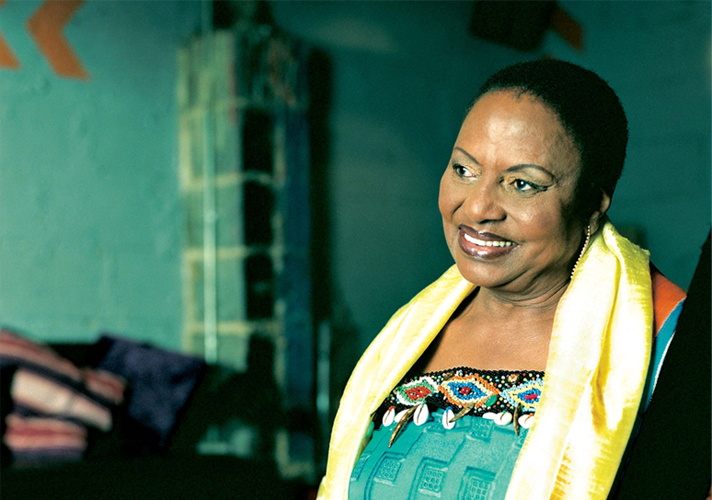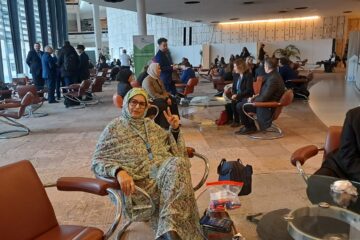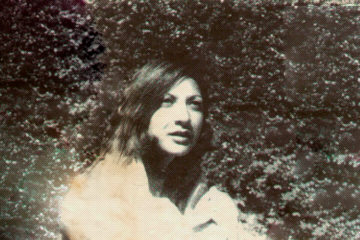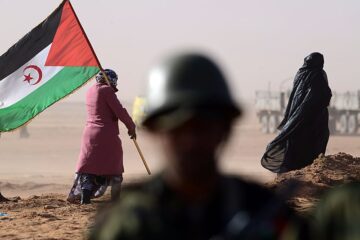Women artists are part of the history of grassroots feminist resistance around the world. Through their fearless voices, words, and creativity, these women address the stories and realities of struggle of the peoples and other women around them.
This July 31st, African Women’s Day, we look back on the work of women artists engaged in the struggle for emancipation on the continent. Through Lydia Dola’s music, we learn the language of women from Kenya, Sudan, and Tanzania; in Linda Kouamé’s spoken word poetry, we denounce the violence and marginalization women from Ivory Coast are subjected to; in Noémia de Souza’s written words, we learn about the resistance and Black sisterhood between women from Mozambique and Black peoples around the world.
These women are part of the history and culture of their countries and territories, and they join the voices of so many other women who struggle. An artist who inspired many others on the continent and marked the struggle for women’s rights in several African countries was Zenzi Miriam Makeba. This article provides a profile of Miriam Makeba, with statements by World March of Women (WMW) militants from Zimbabwe, Kenya, and Ivory Coast about her contributions for African women’s struggle.
Biography
Miriam Makeba was born on March 4th, 1932 in Johannesburg, South Africa. From a very young age she faced the poverty and segregation that marked the racist apartheid political regime, which ruled the country for nearly 50 years. Solange Koné, of the WMW Ivory Coast, recalls that Makeba’s inspiration for the struggle comes from her mother. Miriam Makeba was “a committed woman, and that commitment comes from her mother; her mother was arrested because she was denied the right to practice her profession. She was denied the right to produce beer just because she was a woman;
Myriam Makeba followed in her footsteps and became political, joining the anti-apartheid movement,” Solange says.
At age 17, Miriam started to take the first steps in her musical career. She first started in The Cuban Brothers; but it is with the African jazz band Manhattan Brothers that she records one of her most popular songs to this day, “Pata Pata” (1956). In the 1950s, she creates The Skylarks, an all-woman band, and later that same decade she played in the film Come Back Africa, which denounces racial segregation, and became more popular in her country and abroad.
Throughout her career, Miriam draws huge audiences and becomes very popular on the African continent. Siphathisiwe Moyo, of the WMW Zimbabwe, says “Miriam Makeba’s contribution to the struggle was huge. She was outspoken through her lyrics and concerts which turned into political rallies at times. Through her music she became the voice of Africa.”
She was very political throughout her life. Called “Mama Africa,” Miriam became an important figure in the Pan-Africanist movement, which advocates for the union of the peoples of Africa. The persecution perpetrated by the South African government during the apartheid regime forced her to live in exile for three decades.
Living in the United States, she introduced songs in Xhosa and Zulu to international audiences. During that time, she married an important member of the Black Panther movement, Stokely Carmichael, in 1968. “Because of her political engagement, she is kicked out of the United States and exiled in Guinea, where she starts writing and singing militant songs,” Solange Koné says.
The Struggle Continues
Sefu Sanni, of the WMW Kenya, talks about Miriam’s contribution to African women’s struggle, saying “was not just a voice for her generation, she was a voice for the revolution. Thomas Sankara says ‘there can be no revolution without the total emancipation of women.’ And Mao says ‘women hold half the sky,’—and indeed they do. And this is the voice that Miriam Makeba held for the women of Africa.”
“In her song, when she sings ‘ALuta Continua’, the struggle continues, she urges the people to come out and continue fighting.” Sefu says one of her favorite songs by Miriam Makeba is “Hapo Zamani,” meaning “a while back”, and sang in Swahili. “She says ‘run away, white man, because I’ll come back to my land.’ She was being chased because of fighting, of using her music and her voice to fight for the rights of the working class who were being discriminated, against apartheid. To the point of her being deported. But she said that she would come back and indeed she did.”
Miriam Makeba was in Conakry, Guinea in 1991 when the apartheid regime ended and she was invited by Nelson Mandela to return to her country.
Siphathisiwe says that, after she retired from her career in music, her work at the Miriam Makeba Foundation played a huge role in social organizing, providing safe spaces for girls in vulnerable situations and homeless children, and also exposing and holding campaigns against drug abuse and HIV awareness raising.
About the ways Miriam Makeba inspires African militants, Sefu says, “when it comes to the issues of land ownership, women in political leadership, sexual and reproductive rights of women, and, of course, women as artists, she represented these voices. For the African women, she represents freedom, emancipation, the rights of women to own land, to be part of decision making, to get a seat at the table, to be leaders, to take care of their children, for domestic work to be part of the economic system. She represents the totality of the liberation.”
Solange argues that “this has inspired women of her generation and the following generations, which followed her example expressing her engagement and political activism advocating for the rights of the oppressed. Another aspect is at the political level, as she showed women the pathway toward engaging in politics to promote fundamental rights for all.”




